Azovstal Defender: Numerous Volunteers From Ukraine Ready To Go To Belarus
23- 8.06.2023, 15:47
- 23,724
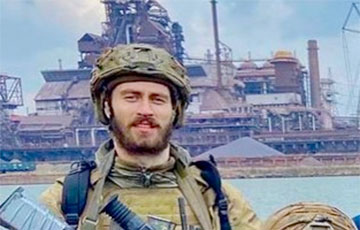
The Charter97.org website had an exclusive interview with heroic Azov fighter Arseniy Fedosyuk.
The defence of Mariupol, which lasted 86 days, has already gone down in history as an example of the heroism of the Ukrainian people. The courage of the fighters of the Azov Regiment contributed to the defence of the city in many ways.
How did the defenders of Mariupol manage to defend the city from superior enemy forces for so long? What do the Azovites go through in Russian captivity? Is it possible to help their liberation?
The Charter97.org website spoke about this with one of the participants in the defence of Mariupol and Azovstal, Azov fighter Arseniy “Process” Fedosyuk.
.Reference: Arseniy Fedosiuk was born in the city of Bila Tserkva, the Kyiv region, on March 8, 1993.
In 2008 he entered the Faculty of Human Sciences at the National University of Kyiv-Mohyla Academy, majoring in history..
Active participant in the Revolution of Dignity. He took part in the battles for Ilovaisk during the Russian-Ukrainian war in 2014.
After the start of the full-scale war, he took part in the defence of Mariupol and Azovstal. He went through Russian captivity. On December 31, 2022, he was exchanged and returned to Ukraine.
“The Russians had Azov, Donbas, Aidar and other volunteers in their pantheon of hatred”
– Arseniy, let's start with the events of the Revolution of Dignity. Why did you, a young guy, decide to take part in the Euromaidan?
– Everything related to the Maidan and the war is obvious to me and my entourage. There were no any questions or doubts, to go or not to go, to participate or not to participate. We saw this as a great historic opportunity to make changes in our country.
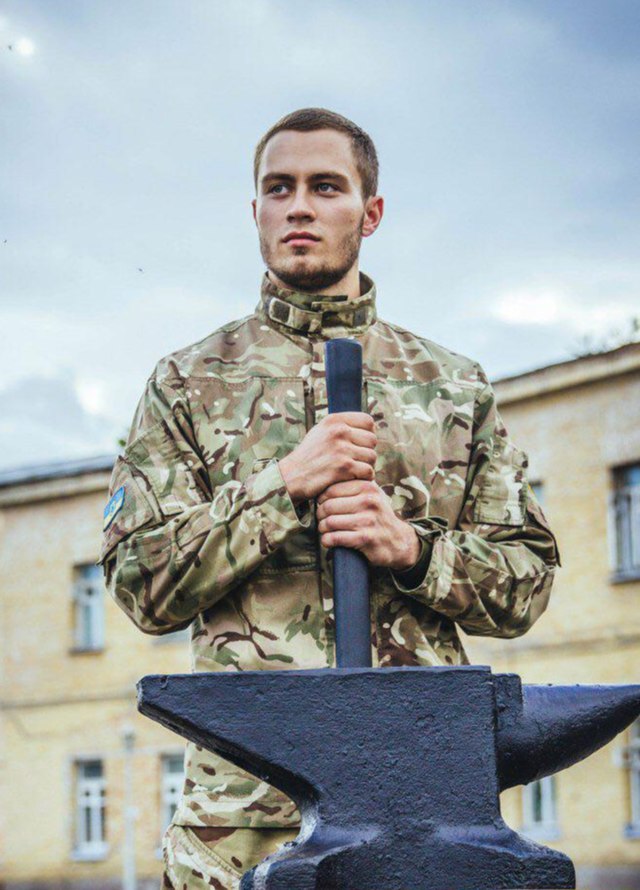
I have lived with the awareness of the fact that Ukraine is an independent state only de jure since my school years. Really, we still have to fight for our independence, we have to fight for that notorious social justice. When these events began, of course, initially there was a stage of euphoria, I was inclined to believe that these were historical events initially. I am a historian by education. I studied at the Kyiv-Mohyla Academy, and for me, let's say, to miss such events is unacceptable.
Even at school, with the study of history, I was instilled with a sense of patriotism. When I studied the history of the Cossacks, I remember that a very serious resentment arose. You know, in the history of every state there was a golden era. It was during the time of the Cossacks that Ukraine had its own subjectivity, a certain weight in the region, it was recognized. Then it rested on the force of arms.
I remember very clearly when the first feeling of hatred for our ideological enemies arose in me. It was 2004, I was 11 years old and I saw on TV a story about a group from the Eurasian Youth Union climbing Hoverla and destroying the monument to the independence of Ukraine there.
– How did the war start in 2014 for you?
– Initially, there was an option to join Azov or another battalion. I had to wait two weeks for a military recruit training to start in Azov, and then another two weeks to go through for this basic training. I figured that it would take even a month and the war could be over. I decided that it would be better to do it as soon as possible. And in another battalion, it was possible to pass the basic training in two days, and then go to the front. I found this option to be preferable. It was also a volunteer battalion. I spent the whole of 2014 there. Then the front became relatively calm, I went home, had a little rest, and then in 2016 I returned to the front, joined Azov and signed a contract.
– Why is the Azov Battalion special? Why are Russians so afraid of it?
– There are the same ordinary people as in other military units, I would not make any significant difference. There are enough motivated and combat-ready units in our country now.
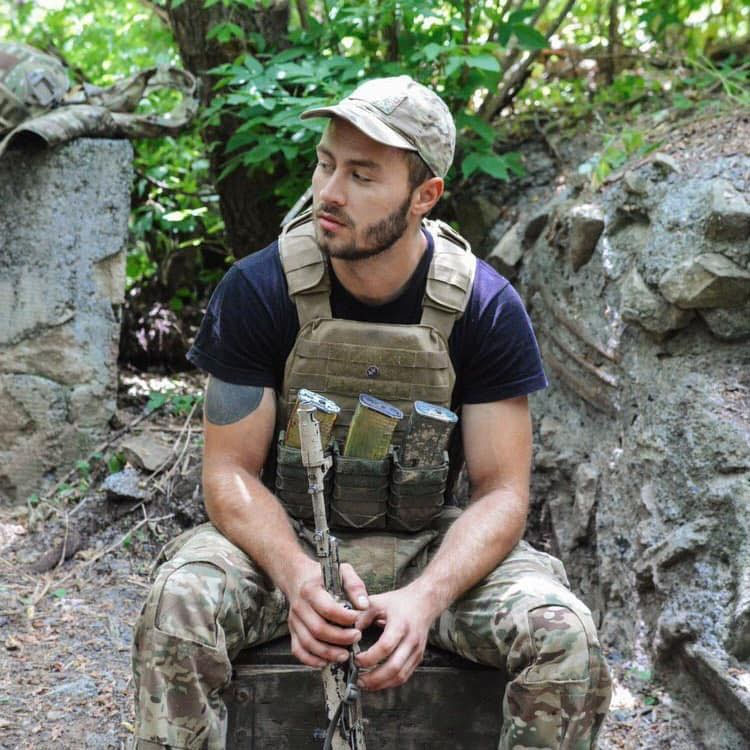
Why Azov? Azov is a unit that initially consisted of 100% volunteers. This contributed to the fact that the people who joined it were aimed precisely at the war. Secondly, the quality of training was also quite high. Starting from 2017-2018, our basic training in Azov was at the same level as the training by the Special Operations Forces and other professional units of the Ukrainian Army. Thirdly, the unit had a high-level provision and high professional requirements for each fighter.
If we recall previous years, especially 2014, then the Russians in the pantheon of hatred have always had Azov, Donbas, Aidar and other volunteer battalions firstly. They hated volunteers most of all. The Russians promoted the idea that the Ukrainian army was formed of ordinary soldiers, they were deployed somewhere, some were mobilized, some were forced to fight. But there were no weak points. And in the case of volunteers, people initially went motivated to fight the enemy on the battlefield and, of course, the reaction of the Russians was appropriate. These units played a key role in 2014. Now, after the start of a full-scale war, such units have a key impact. In military terms, everything rests on motivated people. It doesn’t matter if they are volunteers or contract soldiers, these were originally people who went to fight.
“On February 21, I listened to Putin’s appeal, bought a ticket and went to Mariupol”
– Did you understand that a full-scale war would begin?
– Yes, I have been clearly aware of this since 2014. The only thing is that over time this feeling weakened.
The President of the Russian Federation addressed and recognized the independence of the so-called DPR and LPR on February 21, 2022. It was a clear sign for me that serious hostilities would soon begin.
I will add that in November 2021 my contract ended, I served 5 years in Azov and quit. It turns out that I spent 3 months in civilian life and on the 21st of February, as I remember now, I watched Putin's address and that same evening bought a ticket to Mariupol, left on the 22nd of February and was already at the Azov base on the 23rd of February. I knew for sure that everything would start, but I didn’t know when. I thought that there would be some kind of time gap of several weeks for preparation, but everything turned out to be even faster.
– When did the first battles for Mariupol begin?
– The battles for Mariupol began at the end of February, around the 27-28 of February. Starting from March 2, the city was already completely surrounded. All motorways were blocked, it was no longer possible to leave the city. Gradually, the ring was shrinking and then they already began to enter Mariupol. Around the end of February, we entered close battles with the enemy.
The Russians simultaneously attacked from three directions, blockaded the city from the east, took our positions in the nearby villages: in Shirokino, Pavlopol - this is an old line that has existed since the time of the Anti-Terrorist Operation.
At the same time, there was a column from the Crimea, which, having passed Melitopol and Berdiansk, began to approach us from the west. Also, they began to block the city from the sea, from the south side. The Russians drove several landing vessels to do this.
They destroyed our air defence system on the first day of the war. The Russians disabled the radar and because of this, the Buk systems that were in Mariupol became useless. Therefore, their aviation felt completely comfortable over Mariupol. For example, three weeks before the end of the defence of the city, the guys who were on duty on the slag mountain of Azovstal counted 96 sorties in 12 hours only against the plant.
Their aviation completely controlled the sky and could literally destroy their targets on an unlimited scale.
The Russians had the following tactics: they surrounded the city and blocked all roads. The Russians began to probe our defences on each side. They put pressure on the weakest one. They went on the defensive and took a break where they met resistance. Because the Russians, despite the huge personnel, equipment and artillery superiorities, were much weaker than us in a specific small-arms battle. Therefore, it was very difficult for them to storm. They had to build up very large forces In order to break our defence - this is the first point.
The second point: the Russians constantly used fighting reconnaissance, and sent "meat" assault squads in order to disclose our defences and firing points. Then these firing points were recorded as planned targets and destroyed by artillery and aircraft. Everything got to the point that sometimes the guys were not able to defend themselves, just bricks remained there and then they had to retreat.
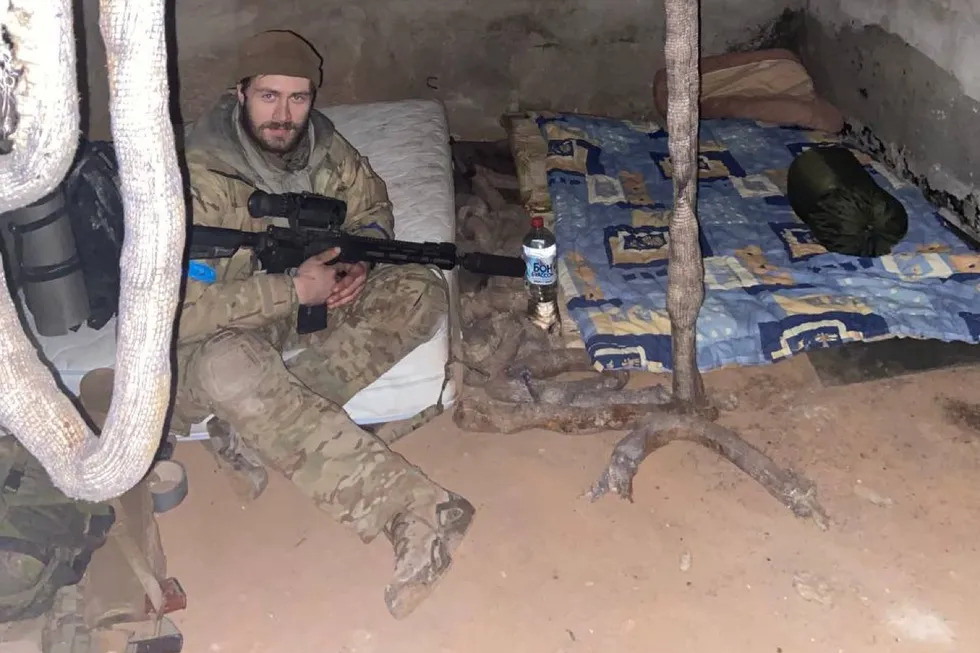
The third point is a large amount of artillery. The Russians did not spare the artillery at all. Every day began at 6 in the morning with massive MRLS fire, from the sea and air bombardment. And a characteristic feature of these hostilities in Mariupol was that the Russians fought on schedule. At about 6 in the morning the war began and at about 6-8 in the evening, depending on when it got dark, it ended. In the evening, the Russians went to rest, sometimes even taking lunch breaks.
At night, our groups, which had the appropriate night equipment, continued to operate. Thanks to this, we were able to effectively hold the enemy in many areas.
"Mortar gunners stopped entire columns with one gun"
- When did you realize that you won't be able to defend the city on your own?
– The realization that we have a hopeless situation came to me at the end of March. This is long before the defence of Azovstal. We had defences on the right and left banks, and most of the city was still behind. But then I realized one thing: we have nothing to oppose the enemy in tactical terms. It had a complete advantage in all forces and means, the ability to evacuate people and replenish supplies. We did not have such an opportunity, we were very limited in technical means. Our artillery did not work due to the fact that there were no shells that could hit at a short distance, there were only long-range ones. We had 120mm mortars at our disposal. And here we must pay tribute to our mortarmen, who performed really awesome work. They could stop entire tank columns with one gun.
We had hope, of course, for some help from the mainland. We were hoping all the time and believing that someone would come. At first, we were believing, then just hoping, then we stopped believing and hoping. In the end, it all became more a matter of self-defence than a matter of victory. As for Azovstal, I cannot single out any features that would differ from the rest of the city. In general, there are no differences between any military operations that take place in an urban environment and industrial zones. The logic is the same. The enemy stormed us - we fought back the assaults.
– Did you have food and necessary medicines at Azovstal?
– We had a supply of military medical aids, we had everything with us. And this helped us a lot, because if someone was sick or wounded with shrapnel, antibiotics were needed - we had a supply of medicines.
We settled in the premises that everyone called "bunkers", but it was just good basements, they were designed for the Civil Defence. There was such a thing as the Civil Defence during Soviet times. And these basements were designed to protect against chemical accidents because Mariupol is an industrial city.
There were some dry rations and bottled water. As I understand it, it was required by law that all this was there.

There were also two large water tanks. The water was technical, but we boiled it, used it for cooking and did not have any problems. Plus, when it was already clear that Mariupol was surrounded, Azovstal began to bring all the products from our bases in Yuriyevka, Urzuf, from the National Guard bases. There was a certain supply of food. There were cereals, there was flour, there was everything else and we could cook.
Then they began to bomb the warehouses that were at Azovstal. Crowds of people were near the warehouses, which attracted attention, and the warehouses themselves became targets for aviation or artillery and were covered by fire. And then, when the warehouses were destroyed, we began to run out of food. The guys were digging out food from the rubble and taking it to the bunker in order to save it in the mornings, between shelling.
– What was your plan when it was already clear that this was the end? Did you think about surrendering?
– No, there was no such idea at all. As a "plan B", if there was a final and unexpected collapse of the defence, everyone kept in mind a possible exit from Mariupol by some separate small groups. When all the defences crumble, there is already, as they say, run for your life. But our main goal was to keep the defence and play for time. We knew that they remember us on the mainland, they are trying to somehow solve this situation. Up to a certain point, this could still be solved by military means, but it was necessary to spend very large resources and it was risky.
Let's say that it was necessary to risk at least two full-fledged brigades in order to save the garrison of four thousand people, in which there would be eight thousand people, to unblock Mariupol, but this would not guarantee any result. From a military point of view, this is very risky, especially since there were moments when the Armed Forces of Ukraine could not scatter forces.
We began to look for some other possible ways out of this situation, so we found a diplomatic way out. The only positive aspect of this decision was that we were not killed when we laid down our arms. If this happened without prior agreement, then a large number of people would be shot on the spot and after interrogations.
“There are suspicions that the Russians poisoned food somehow”
– II cannot but ask about Russian captivity. We see footage of the liberated Ukrainian soldiers rejoicing at an apple. What happens to them there if they rejoice in such simple things?
– The conditions of the captivity are aimed at causing maximum damage to physical health and breaking a person and psychologically. In physical terms, this begins with nutrition, which, in terms of calories, does not cover the daily necessity. In the cell, you move little, but you are constantly dizzy because of hunger.
– What was a typical daily meal?
– There were three to five tablespoons of porridge for breakfast, without a slide, about 20 millilitres of tea. Lunch - watery soup and three to five tablespoons of porridge. The same for dinner. They usually gave us potatoes and fish for dinner. As I understand it, this is some kind of Russian prison tradition, because I read that in many prisons people eat this way.

They create such a calorie deficit on purpose. It started from Yelenivka. In Yelenшvka, it seemed to us that it was crazy to feed people like that, then we were transferred to Taganrog, and I realized that this was actually a lot in comparison.
In addition, there are now suspicions that the Russians added some kind of poison to our food, because all the people from my exchange group returned with liver damages. Tests showed this. There were associated health problems. Doctors conclude that some kind of poison was added to the food. Recalling my condition, I understand that this is quite possible.
– Have you been tortured?
– Of course, regularly. They started to interrogate everyone at some point. They use the entire set of Russian traditions there in order to force testimony - the KGB and NKVD methods. In general, they have the whole set of tools to break the will of a human being. They can beat with their hands, feet, pipes, electric stunning devices and anything. You are from Belarus, I think, you are familiar with the methods of work of the Belarusian KGB. I think everything is clear here.
– The Red Cross took certain obligations so that the prisoners would have appropriate conditions. Have you seen these people?
– We saw them once, at the moment when we were leaving Azovstal. As we boarded the bus, representatives of the Red Cross came in and handed out questionnaires to us. We indicated our data in the questionnaires - first name, last name, relatives so that the Red Cross could contact them. It was the first and last time we saw them.
After that, they were never allowed into the territory of the Yelenovskaya colony, neither in the pre-trial detention center in Taganrog, nor in the pre-trial detention center in Donetsk, no one was there and they did not exercise any control.
Compared to Russian prisoners of war who are in Ukraine, the Red Cross has unlimited access to them. They very carefully monitor what people's dietary standards are, and make sure that they are given cigarettes. Russian prisoners can work there and receive wages, and then spend this money on anything in the store. We didn't have it.
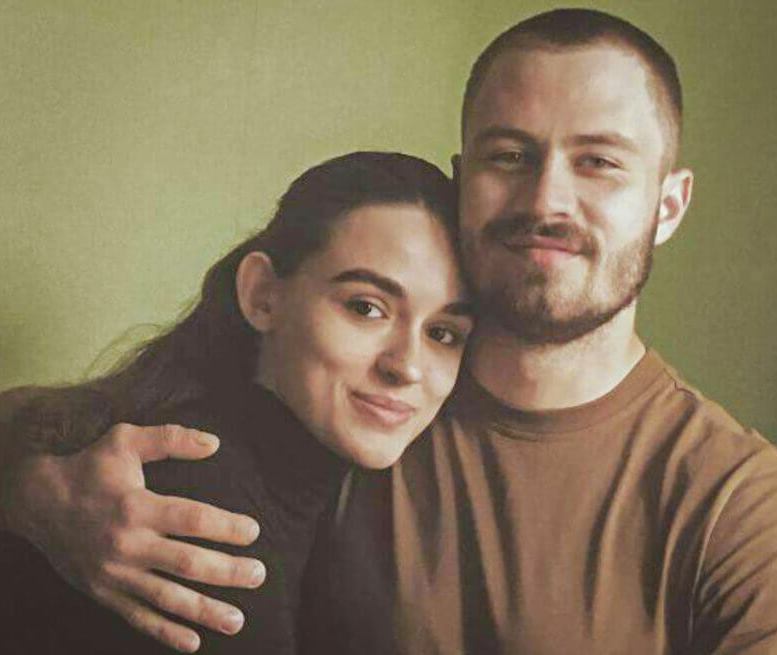
– How many Azovites remain in captivity now? Is there any progress to somehow include them in the exchange lists?
– About 700 people are still in captivity, about 200 have been exchanged. They are exchanged very reluctantly because the Russian side considers the Azovites an expensive currency. If we remember, for example, even the last exchange, then our people were exchanged for three military pilots. Moreover, these pilots were in captivity almost from the very beginning of the “full scale” [war], the Russian side regularly requested them.
– What can be done today to somehow help the Azovites?
– It's necessary to have this issue on the agenda all the time. But as a military man, I know that for my part I can influence this process only by replenishing the exchange fund. I think there will be a direct relationship between successes at the front and the liberation of our people. Another option is the exchange of all for all, but my subjective opinion is that this exchange is possible only if there are some accompanying factors.
Perhaps this will be in the course of some other agreements that are mutually beneficial for the two states, or as an agreement that is already underway before some kind of peace talks.
“Numerous volunteers from Ukraine ready to go to Belarus”
– The acting commander of the Azov Brigade, Bohdan Krotevich, said a rather extraordinary thing that in order to defeat Russia, one could think about the fact that the Armed Forces of Ukraine entered the territory of Belarus. How do you feel about such an idea?
– From a military point of view, I think that it is more reasonable to enter certain sections of Russian territory in order to force the Russians to withdraw troops, gather forces and weapons in these areas, and force them from the fronts on the territory of Ukraine.
Krotevich, I think, had in mind a slightly different thing. Ukraine could well share the burden of responsibility that the Belarusian people bear in the fight against post-Soviet kleptocratic dictatorships.
Ukraine could support if something started in Belarus. I think we would find a huge number of volunteers who would dare to go to Belarus. We remember very well how many Belarusians have come to us since 2014. A quite adequate response from our side would be to help Belarus in turn.
– Have you ever fought together with the Belarusian volunteers? What can you say about them?
– I can only say good things about Belarusians. The people I met made a super positive impression. Belarusian volunteers are fighting well because they came to Ukraine deliberately.
– I would like to hear your forecast of how the situation at the front will develop. What do you think about the end of the war with Russia?
– The question is very ambiguous. After the start of the "full-scale" [war] I swore off making any global forecasts. A week before February 24, 2022, I discussed the situation with my friends and said that the Russians would definitely not leave Crimea. Indeed, I thought it was impossible to withdraw a huge number of troops without loss through the Crimean Isthmus. I was a bit naive then. I did not take into account the accompanying factors.
Let me tell you about possible options for the development of events in my opinion. The first scenario is victorious: we liberate our territories at the beginning of 2014 borders. Such a scenario is likely, but it requires a very large resource from the country. If a total mobilization were carried out now, and we were given enough weapons to equip all the brigades, this would be quite real. We could liberate all territories by force, including Crimea. But the option of a general mobilization is unlikely.
Another scenario is likely: we liberate a certain amount of the occupied territories of the Zaporizhzhia and Kherson regions and there will be some changes in the Donetsk region. Then we will enter operational space and force the enemy to rapidly withdraw troops. After that, when we reach a fairly advantageous negotiating position, the whole world will start pushing us to sign some kind of agreement. It may not be a final agreement, but some kind of sustainable ceasefire.
It is possible that this will turn into a situation like with the Anti-Terrorist Operation and the Joint Forces Operation when there will be a relatively stable front line, but some degree of hostilities will remain. Unfortunately, in this type of war, we are very much dependent on our allies. Comparing both the human potential and the provision of weapons, of course, the Russian Federation has more resources. It's pretty hard to fight such a Goliath.
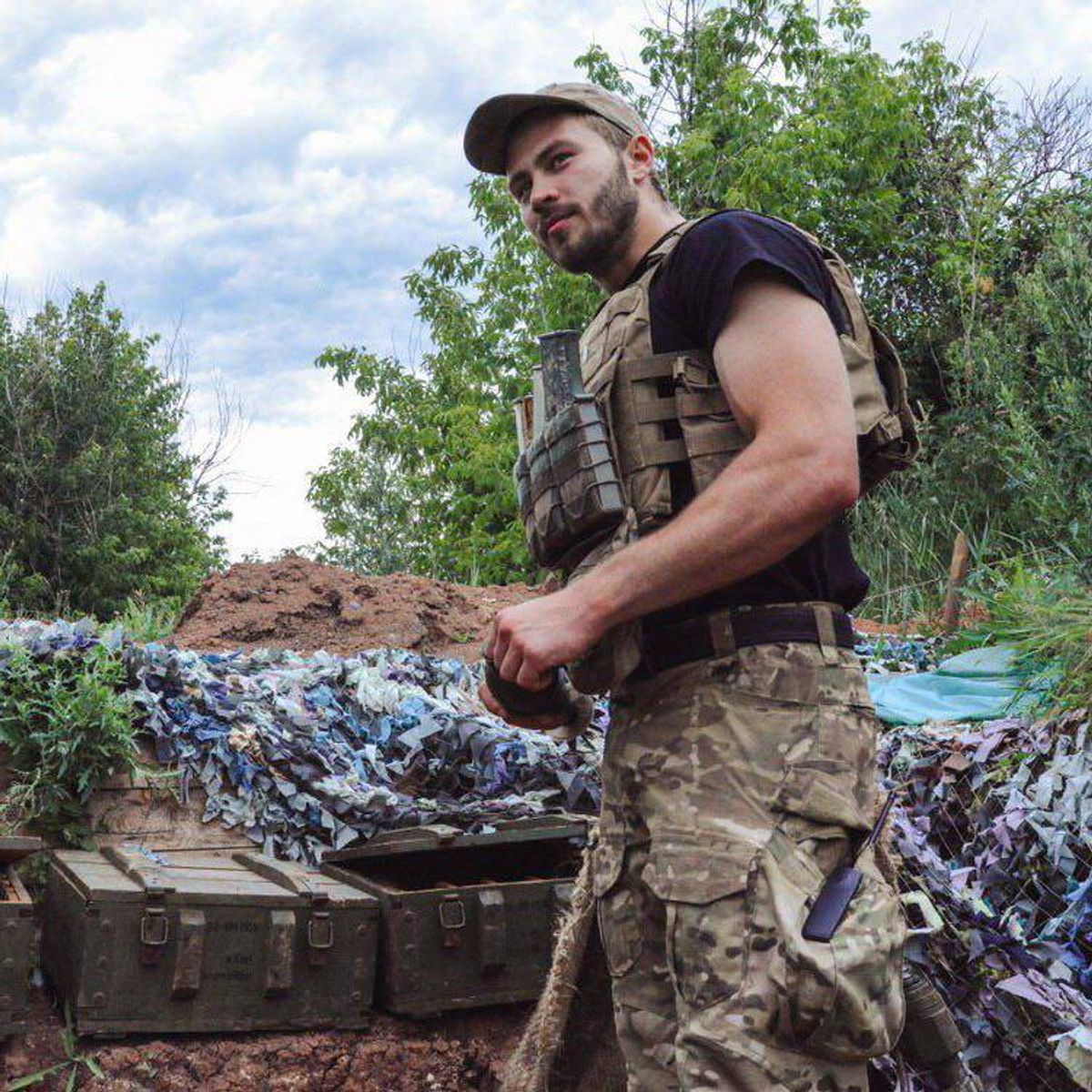
– What will happen to Ukraine in your opinion after the war and what are you going to do?
– I see Ukraine as a kind of center for a reformatted East Slavic space. Recently, the ideas of Intermarium have become very popular with us.
History tells us that the situation in the region must change. In this case, Ukraine can take on a historical role and become the centre.
As for me, then I will be a military man during the war. I think that all of us are like that until we restore state integrity and defeat the enemy. Afterwards, it will be possible to think about how to help our fraternal peoples.











